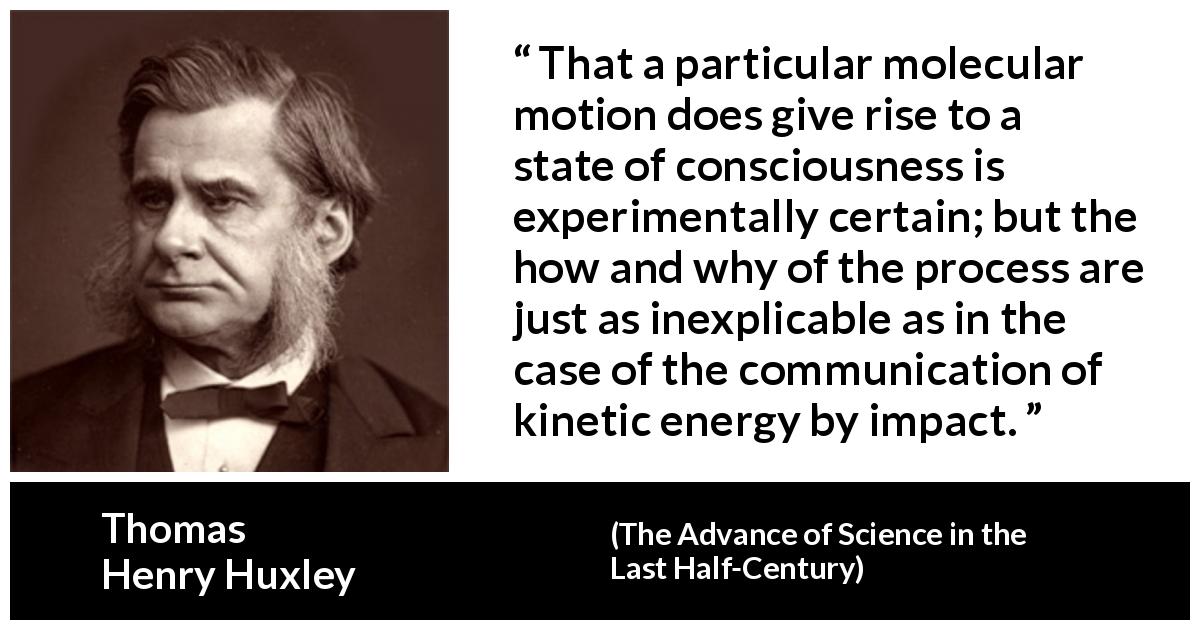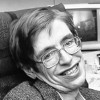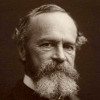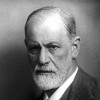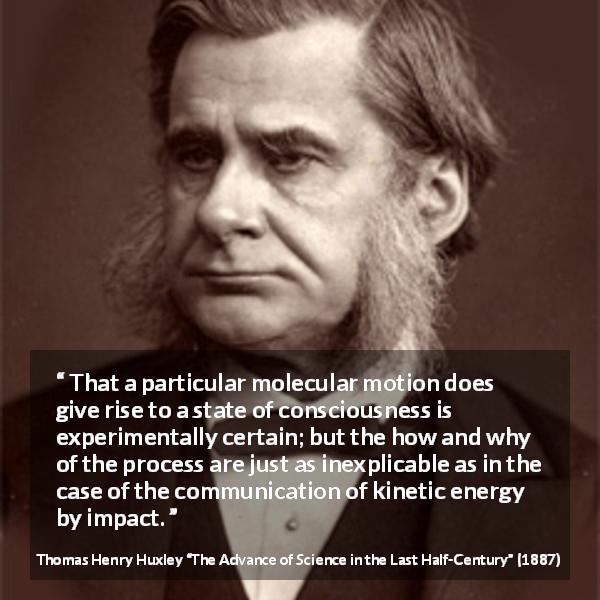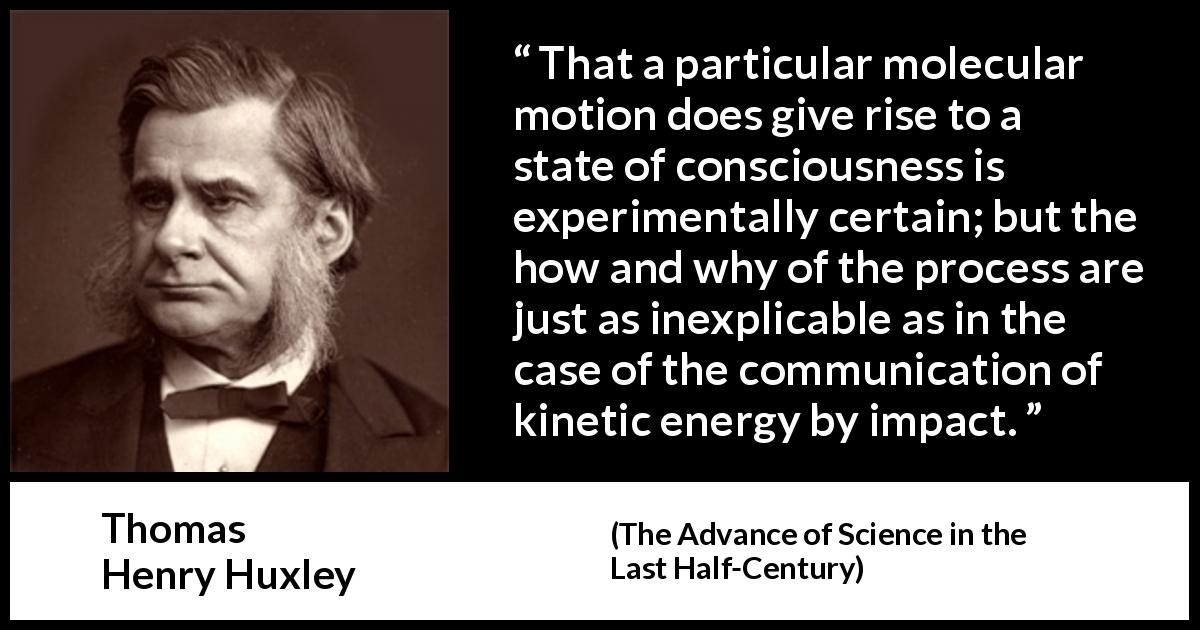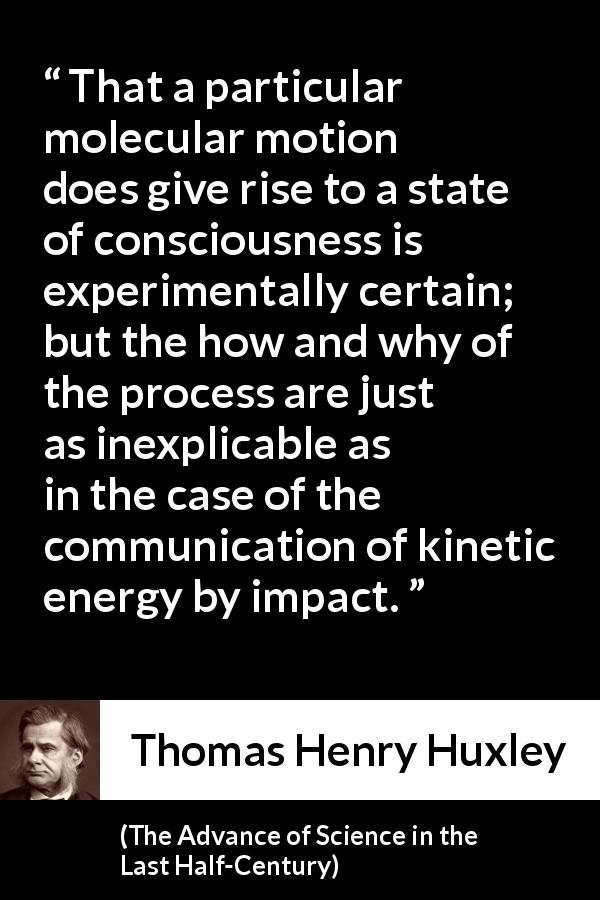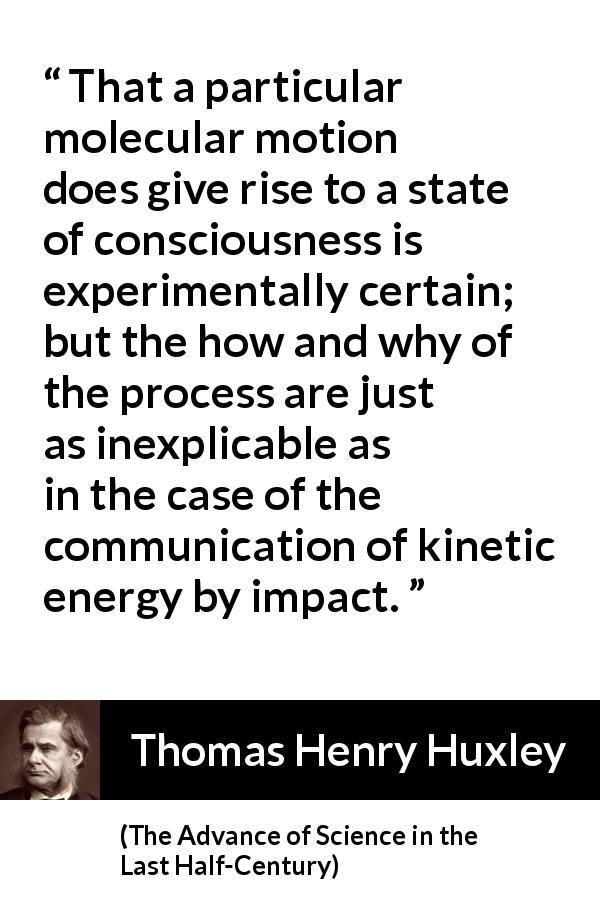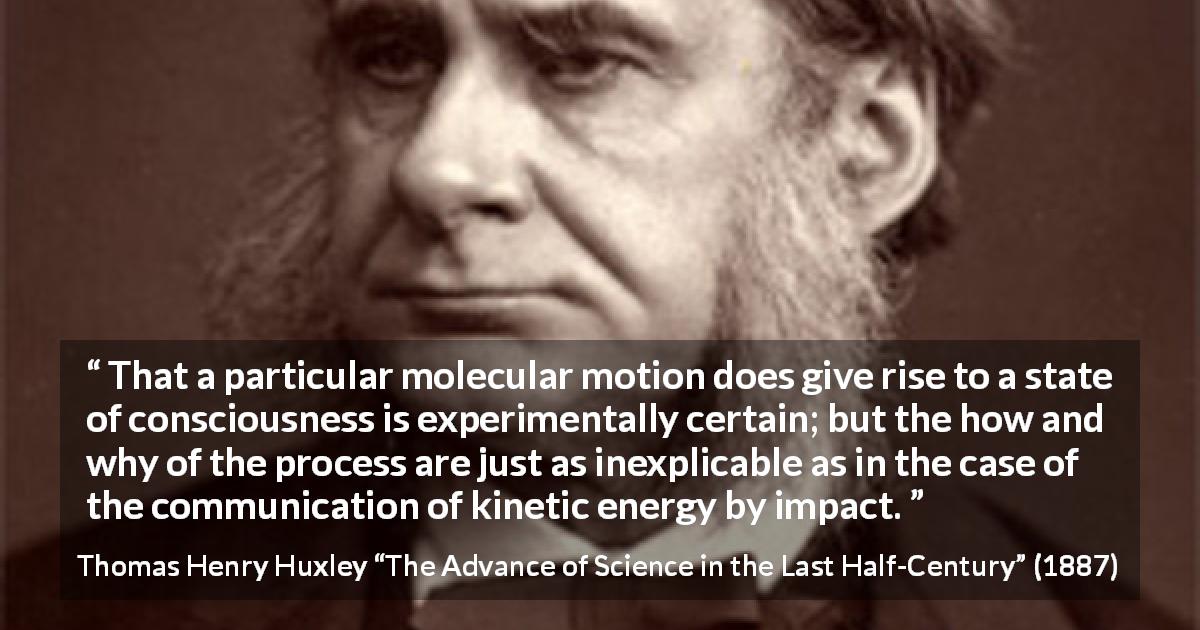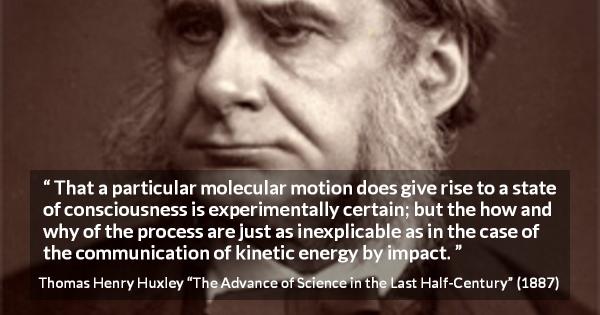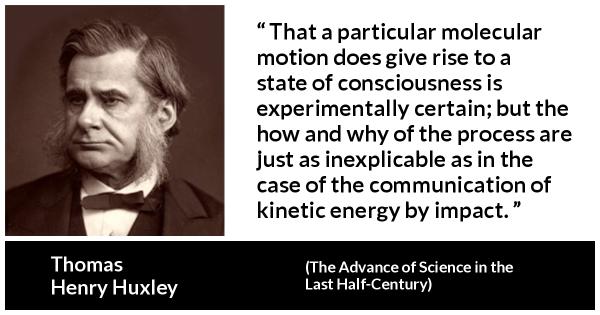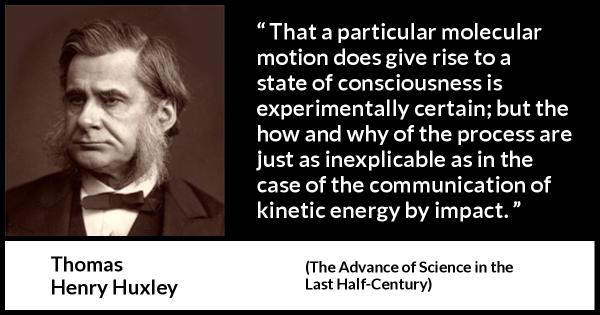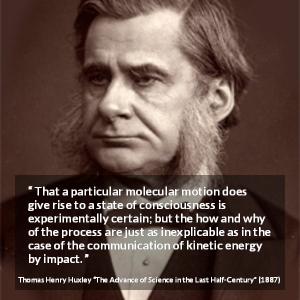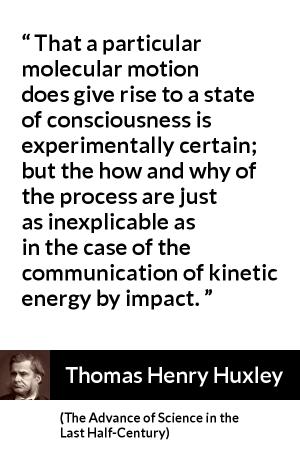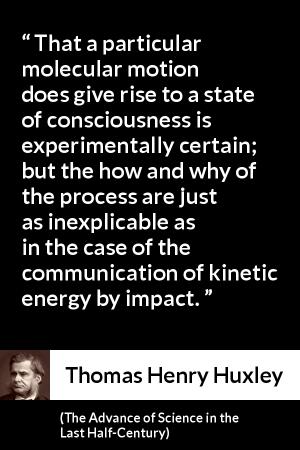“ That a particular molecular motion does give rise to a state of consciousness is experimentally certain; but the how and why of the process are just as inexplicable as in the case of the communication of kinetic energy by impact. ”
Thomas Henry Huxley, The Advance of Science in the Last Half-Century (1887). copy citation
| Author | Thomas Henry Huxley |
|---|---|
| Source | The Advance of Science in the Last Half-Century |
| Topic | theory energy experiment |
| Date | 1887 |
| Language | English |
| Reference | |
| Note | |
| Weblink | http://www.gutenberg.org/files/15253/15253-h/15253-h.htm |
Context
“The phenomena of consciousness which arise, along with certain transformations of energy, cannot be interpolated in the series of these transformations, inasmuch as they are not motions to which the doctrine of the conservation of energy applies. And, for the same reason, they do not necessitate the using up of energy; a sensation has no mass and cannot be conceived to be susceptible of movement. That a particular molecular motion does give rise to a state of consciousness is experimentally certain; but the how and why of the process are just as inexplicable as in the case of the communication of kinetic energy by impact.
When dealing with the doctrine of the ultimate constitution of matter, we found a certain resemblance between the oldest speculations and the newest doctrines of physical philosophers. But there is no such resemblance between the ancient and modern views of motion and its causes, except in so far as the conception of attractive and repulsive forces may be regarded as the modified descendant of the Aristotelian conception of forms.” source
When dealing with the doctrine of the ultimate constitution of matter, we found a certain resemblance between the oldest speculations and the newest doctrines of physical philosophers. But there is no such resemblance between the ancient and modern views of motion and its causes, except in so far as the conception of attractive and repulsive forces may be regarded as the modified descendant of the Aristotelian conception of forms.” source
